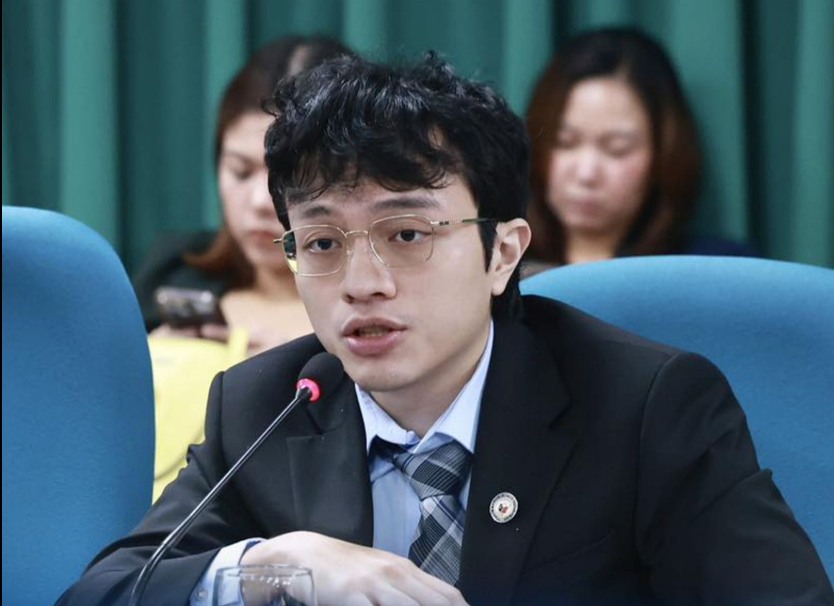There is something fundamentally flawed with Congress. Despite its brag that it exercises the “power of the purse” judiciously, it crafts a national budget that oozes with fat yearly. Moreover, the job of making the budget falls on a bureau of the Department of Budget and Management (DBM), not Congress, and the worst grafters have to kneel before DBM pencil pushers to get their Special Allotment Release Orders (SAROs.) The budget begins with Malacanang and ends with Malacanang.
Nominally, it is the lawmakers who should initiate the budget process since they “represent” the people and were elected to craft laws, not to line their pockets, until 1920, when the Americans introduced the pork barrel. It goes without saying that the legislature organized by the Americans promoted US interests and supported unbridled exploitation of the colony’s natural and labor resources. Even when gther 1935 Constitution placed a cap on private land ownership at 1,024 hectares, US logging concessions, agricultural plantations and mining ventures controlled land in excess of that limit.
To gift the Filipino people with another blatant violation of their interest, the House of Representatives and the Senate approved House Bill 10755 and Senate Bill 2898, respectively, that have been embellished by Malacanang mouthpieces led by Cesar Chavez as well as legislative megaphones as “priority measure” and “a supposed centerpiece of Ferdinand Marcos Jr investment agenda,” is nothing short of a betrayal of Filipino farmers and an affront to the principles of national sovereignty and genuine agrarian reform.” Like the detested 2025 General Appropriations Act (GAA) that retained the same assailed pork and public works projects, with a puny P194 billion shaved from the budget that will be funded by debt and the sequestered reserves from health insurance and bank deposit insurance, the legislative proposal protects, defends and promotes foreign land ownership by extending the minimum lease on land to 99 years. Like the 99 years for the US military bases, like the 99 years for Guantanamo Bay in Cuba.
This gift for New Year’s Day 2025 stands athwart the people’s interest in the simple sense that 59% of all the privately-owned agricultural (PALs) are still controlled by landlords, and this 59% of arable land may end up being divided up among surprised foreign investors who never demanded cheap land and cheaper labor to exploit. The English “gift” for foreigners is the German “Gift” for farmers and poor Filipino citizens. “Gift” in German is poison, toxin or venom and the proposal kludged by the indefatigable lawmakers under the baton of the Marcoses and Romualdezes is a deadly “das Geschenk” for the entire Filipino people sellout. It has nothing to do with Marcel Mauss’s “The Gift,” when rulers or chieftains provide the ruled or the subjects with feasts and presents during social rituals to maintain their domination.
The Kilusang Magbubukid ng Pilipinas (KMP) has denounced the passage of Senate Bill 2898 and House Bill 10755 as a throwback to colonial times, when Spaniards condemned the indios to accept the lie that all lands belonged to the Spanish Crown.
KMP chairperson Danilo Ramos lambasted the measure, arguing that “a 99-year lease is virtually equivalent to perpetual foreign control over our lands. These bills sell out our nation’s patrimony to foreign interests at the expense of Filipino farmers and rural communities. “Allowing foreign investors to lease land for almost a century jeopardizes national sovereignty, food security, and the rights of farmers. It institutionalizes policies that perpetuate land monopoly and rural poverty. It is a stark reminder that Marcos Jr. serves as the chief representative of landlords and foreign corporations, not the Filipino people.”
The bill’s backers insist the extended lease terms will attract foreign investments, particularly in tourism, agroforestry, and industrial projects. Yet, existing laws already allow joint ventures to enjoy the same kind of national treatment that foreign corporations and individual investors crave. They have become more equal than Filipinos. Who says that parity rights are not enjoyed by foreign moneybags. There are many Harry Stonehills among them, the Heald Lumbers and logging concessionaires that exploited Cagayan, Cordillera, Sierra Madre, and the deepest recesses of Samar Island. Yet, these investment, tax and tariff perks are not enough. Give them an inch and they’ll grab a mile. t f perks are However, KMP warns of the devastating consequences this will have on local farmers and Indigenous peoples, whose lands will be further subjected to speculative investments and land grabs.
Rafael Mariano, KMP chairperson emeritus and former DAR Secretary, emphasized: “This legislation disregards the rights of farmers and indigenous communities. It exposes our lands to the dangers of subleasing, displacement, and militarization under the guise of promoting foreign investment. History shows that farmers remain at the losing end of such policies, receiving meager compensation while their lands are exploited for profit.” Mariano and Ramos cited the abuses under similar land lease arrangements, in which farmers and indigenous communities were displaced, and lands were converted into ecozones, plantations, and industrial parks. These projects have often led to militarization, human rights violations, and environmental destruction. The KMP also pointed out the glaring contradictions in the bill. While it ostensibly aims to encourage development, it fails to address the root causes of poverty and underdevelopment in rural areas: landlessness and the absence of genuine agrarian reform. Today, 90% of farmers remain landless and huge tracts of agricultural lands are still under the control of big landlords and corporations.




